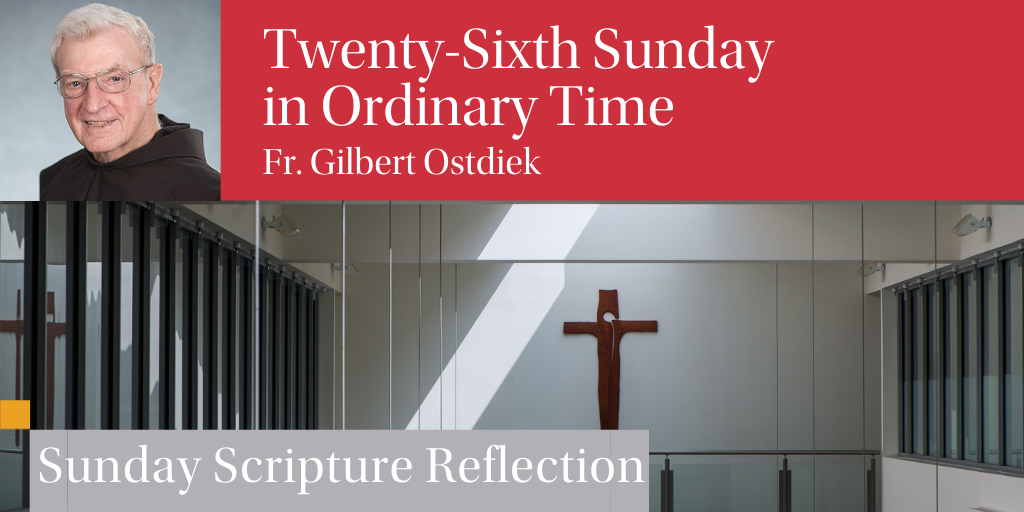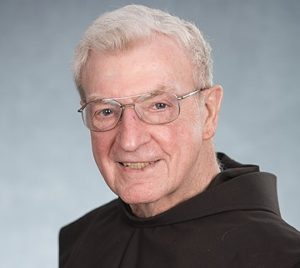

Readings:
Reading 1: Ezekiel 18:25-28
Responsorial Psalm: Psalm 25:4-5,6-7,8-9
Reading 2: Philippians 2:1-11
Gospel: Matthew 21:28-32
Show us your ways, O Lord
How are we to cope with the turmoil of issues that have gathered over us like the dark clouds of a perfect storm? Pandemic, economic uncertainty, ecological crisis, unbending divisions, deep-seated racism . . . What path lies open to us? Can today’s readings light up a way forward for us?
The readings from Ezekiel and the Gospel each offer us a preliminary assurance. Change is possible in God’s eyes, they tell us. We are not trapped in our failings and misdeeds of the past, doomed by our past sins. That is the good news. But neither are we free to rest on our laurels, blithely content with our good deeds of the past. That is to resist new challenges. In either case, what God looks at is where we are now. Are we at work in the vineyard that is God’s reign? Whether we have said ‘yes’ or ‘no’ to God’s invitation to be co-workers there, like the two sons, what matters for God is what we’re doing now.
What are we to do in face of the deep stubborn divisions we experience now? Or in response to the widespread protests that have made us acutely aware of the reality of racism woven into the fabric of our entire national history? Might there be a glimmer of light in Paul’s letter to his community at Philippi?
The passage in today’s second reading, like much of that letter, is devoted to instructing the Philippians about unity and humility. Paul writes: “Do nothing out of selfishness or out of vainglory; rather, humbly regard others as more important than yourselves, each looking out not for your own interests, but everyone for those of others.” What better way is there to replace division with unity? Isn’t that what we see happening around us now? People who have turned mask-making into a cottage industry; neighbors and strangers collaborating in collecting and distributing food and clothing to those who have none; patrons paying their barber in advance for haircuts later, to keep his barbershop from going out of business; a rainbow coalition of protestors gathered together to demand change in a culture of unjust and violent treatment of people of color. The list goes on.
Should we Christians not be at the forefront of these unselfish actions on behalf of the interests of others, rather than our own? That is simply love by another name. That is the kind of witness, a “silent proclamation” of the Gospel, to which our Church’s documents on evangelization and mission call us. In today’s second reading, in the beautiful language of an early Christian hymn, Paul proclaims that Christ Jesus,
“though he was in the form of God,
did not regard equality with God something to be grasped.
Rather he emptied himself,
taking the form of a slave,
coming in human likeness,
and found human in appearance,
he humbled himself,
becoming obedient to death,
even death on a cross.”
To let go of oneself completely, to “empty” oneself for others, is the height of humility, of love incarnate. It is, Paul says, the same attitude Christians are to have. The root of humility is humus (dirt). Whatever our color, we are all children of earth, earthlings. Jesus became an earthling, one of us, to show that we are all equal, deserving of mutual respect and care. That is the way he pioneered for us to follow. And that is the ray of light in our dark world.
A simple image. The Easter Vigil begins in darkness. From fire, we light the Paschal candle. As that candle processes into the darkened church, one after another we light tapers from it. Gradually the place where we are gathered becomes aglow with light, and we become one with Christ, the light of the world. Maybe the way forward for us now, the way Christ has opened for us to walk, is to join all people of goodwill and be the vanguard light that darkness cannot overcome. We can change; we can heal our divisions; we can overcome the evils of racism — God willing and by God’s grace.
“Show us your ways, O Lord”
Rev. Gilbert Ostdiek, OFM
Professor of Liturgy